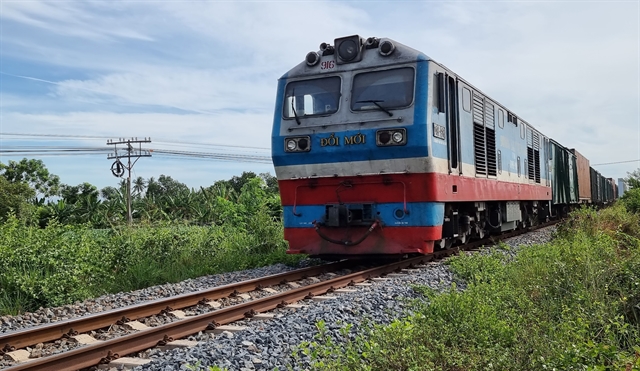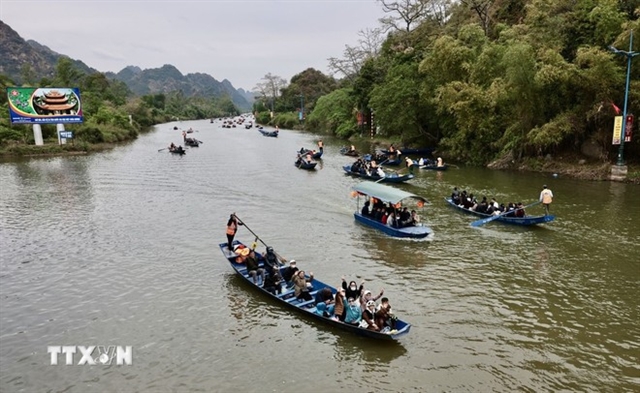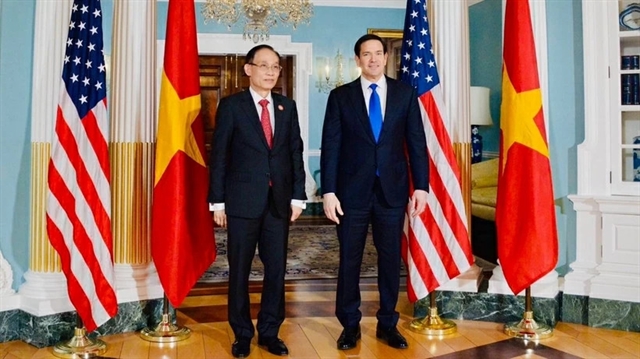 Economy
Economy


|
| Nguyễn Bá Ngãi, VIFORA vice chairman and general secretary. |
The EU and other markets are imposing stricter requirements on Vietnamese companies' production and business practices, forcing Vietnamese businesses to prioritise transparency in their production and business processes.
Nguyễn Bá Ngãi, vice chairman and general secretary of the Việt Nam Forest Owners Association (VIFORA), spoke to Việt Nam News reporter Tố Như about this issue.
Export conditions to the EU market are stricter. How will they affect the input materials of domestically planted forest wood?
The EU market has many barriers. They do not aim to ban exports from others to this market. They want to import wooden products that meet all legal requirements for the EU market.
The EU has a new law aiming that all forest-based products must be proven to be deforestation-free.
Việt Nam and the EU have signed a Voluntary Partnership Agreement (VPA) on Forest Law Enforcement, Governance and Trade (FLEGT). This is a trade agreement between Việt Nam and the EU to create a legal framework for timbers and wood products exported by Việt Nam and the EU.
This agreement deals with accountability and forest law enforcement. However, it is not enough under the new EU law.
All wood products, non-timber forest products and other products from the forest can still be exported. Still, enterprises must demonstrate that these products do not harm the environment and do not involve natural deforestation.
This is a new challenge for enterprises exporting timber and wood products to this market.
Therefore, the first thing Việt Nam has to do is to review whether the timbers are taken from activities of natural deforestation.
Shortly, we need to have very strong changes in the proof of forest origin. Việt Nam has the Việt Nam Timber Legality Assurance System (VNTLAS) and several sub-law documents relating to this issue for wood products to trace the origin of timber. However, those regulations for some other products are still unclear. Therefore, we need to continue to improve the traceability system.
Will Vietnamese businesses face many challenges if their export products do not meet the new EU standards?
This is a development process. The enterprises should not be afraid, but they need to consider this as work they must do themselves and meet the EU requirements. This is similar to the fact that EU goods entering Việt Nam must meet Vietnamese standards.
The businesses will need a lot of effort and expense, but they must do it to integrate into the international market, including the EU.
Việt Nam has a large volume of coffee exports to the EU market. However, if the enterprises cannot prove that the area growing coffee trees does not destroy the natural forests, they will not be permitted to export coffee. At that time, the coffee production and export chain will be suspended. Therefore, it forces enterprises to do this.
With the new requirements of the EU, does Việt Nam need to be more transparent, especially in the supply chain of planted timber?
This is correct. Việt Nam has had the VNTLAS system and Decree 102, but the State needs to perfect this decree and meet the standards of the EU market and other markets.
The problem is weak enforcement of the regulations.
Việt Nam has a system of regulations relating to product traceability, but it lacks human resources, an administration system and the technology to monitor this issue. Those are things that Việt Nam needs to complete.
At present, this nation has made great efforts to prove the origin of products to keep the export market.
Việt Nam has already had laws to prevent businesses from committing fraud of product origin to protect Vietnamese commodities sectors. VNS




